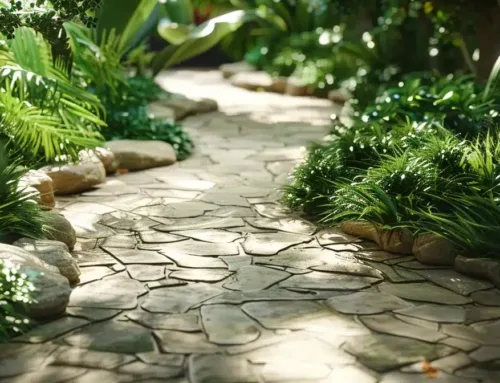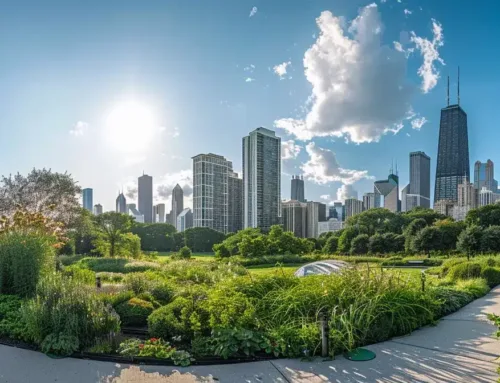In an age where the environment is at the forefront of global discussions, homeowners are increasingly focusing on sustainable practices that can make a difference in their backyards.
Sustainable landscaping is more than just a trend; it’s a comprehensive approach to gardening and yard care that respects and enhances the natural environment.
This blog post will explore how eco-conscious homeowners and gardening enthusiasts can adopt sustainable landscaping practices to create beautiful, thriving outdoor spaces that contribute positively to their local ecosystem and the planet.
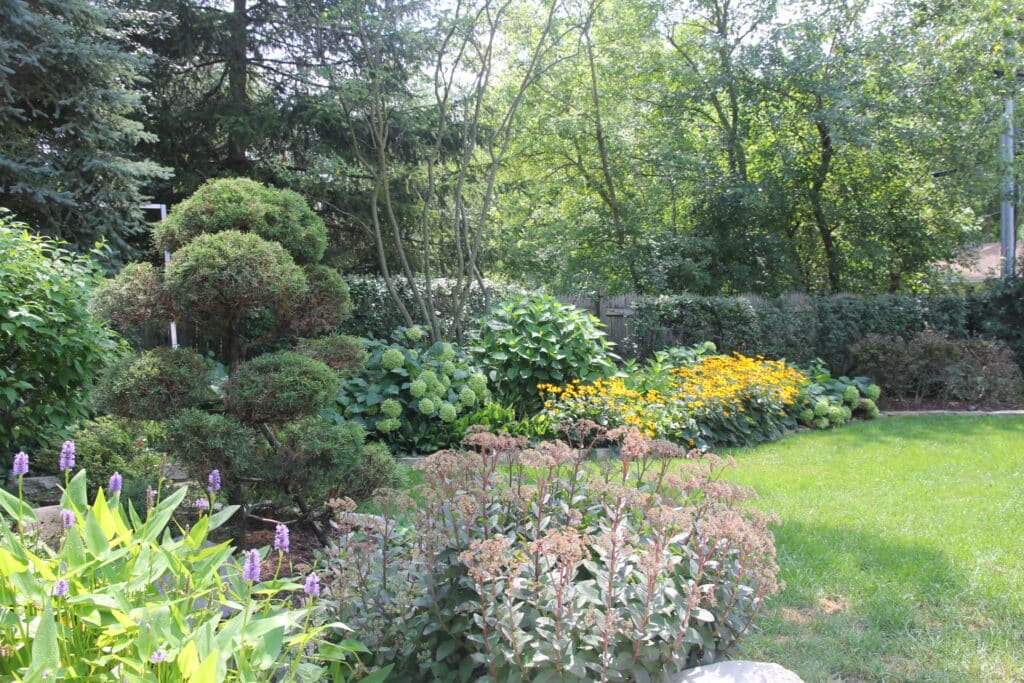
Introduction to Sustainable Landscaping
Sustainable landscaping encompasses a variety of practices designed to create an aesthetically pleasing outdoor environment that is in harmony with the local climate and ecology. This method goes beyond basic gardening by considering how garden activities impact the environment, from water usage to the types of plants used.
By incorporating native plants that require less water and are more resistant to local pests and diseases, sustainable landscaping reduces the need for chemical fertilizers and pesticides. The goal is to minimize environmental impact and promote biodiversity while creating a green space that is both beautiful and sustainable.
Additionally, sustainable landscaping often includes the use of permeable paving materials to reduce runoff, composting to enrich soil health, and rainwater harvesting systems to further conserve water.
With these thoughtful practices, sustainable landscaping not only enhances the beauty of our outdoor spaces but also contributes positively to the health of our planet.
Benefits of Sustainable Landscaping for Homeowners
Adopting sustainable landscaping practices offers numerous benefits, not only for the environment but for homeowners as well.
By integrating eco-friendly gardening methods, such as using native plants that require less water and are more resistant to pests, homeowners can enjoy reduced water bills, lower maintenance requirements, and a healthier outdoor environment free from harmful chemicals.
Additionally, the use of organic fertilizers and natural pest control methods can further reduce the impact on the ecosystem.
Furthermore, sustainable landscapes can increase property value by enhancing curb appeal and providing a functional, aesthetically pleasing outdoor space. These practices also create a haven for local wildlife, fostering biodiversity and supporting pollinators, birds, and other beneficial creatures.
Ultimately, sustainable landscaping transforms your backyard into a vibrant, thriving ecosystem that benefits both the planet and your personal well-being.
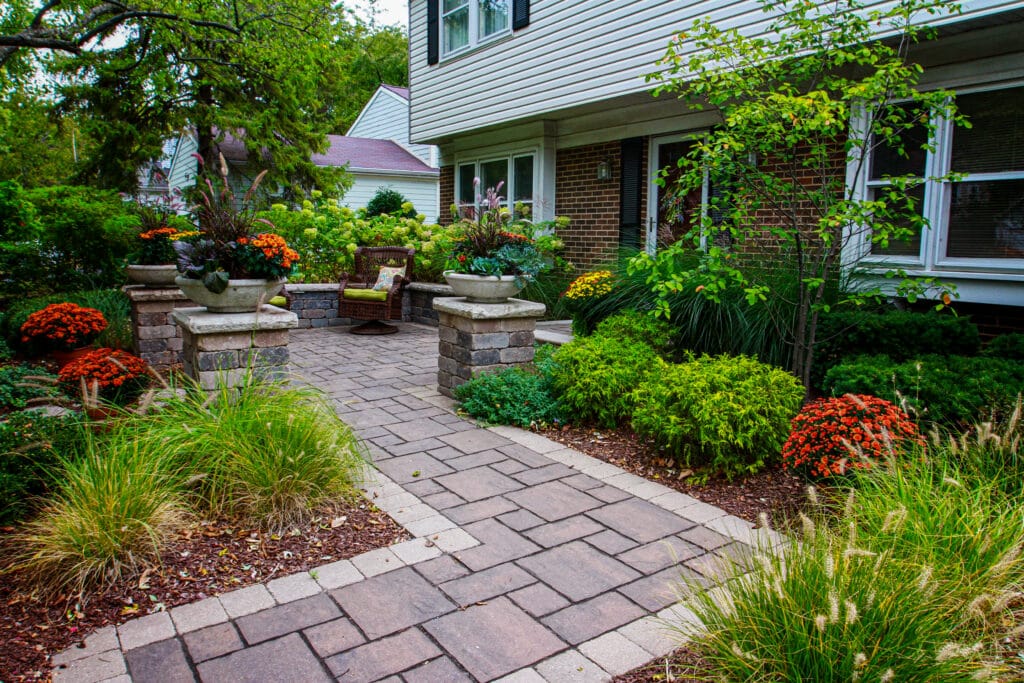
Native Plant Gardening
One of the cornerstones of sustainable landscaping is the use of native plants. These are species that naturally occur in your region and are adapted to the local climate and soil conditions.
Native plant gardening requires less water and fewer pesticides than non-native alternatives, as these plants have evolved to thrive in their natural habitat. Additionally, they provide essential food and shelter for local birds, insects, and other wildlife, supporting biodiversity.
By choosing native plants, gardeners can create beautiful and resilient landscapes that are in harmony with the environment. These plants often have deep root systems that help to prevent soil erosion and improve water infiltration, contributing to healthier soil.
Furthermore, native plants can also reduce the risk of introducing invasive species, which can disrupt local ecosystems and outcompete indigenous flora. Embracing native plant gardening is not only an environmentally friendly choice but also a way to celebrate and preserve the natural heritage of your region.
Rainwater Harvesting
Rainwater harvesting is a simple yet effective way to reduce your environmental footprint and support your garden. By collecting and storing rainwater, homeowners can provide their plants with a natural water source that’s both free and environmentally friendly. This practice reduces dependence on municipal water systems, conserves a valuable resource, and can help manage stormwater runoff, protecting local waterways from pollution.
The process typically involves setting up a rain barrel or a more complex rainwater harvesting system attached to your home’s gutter system. Rainwater is channeled from the roof into storage containers, which can range from small barrels to large underground tanks. This collected water can then be used to water plants, wash cars, or even flush toilets, depending on the system’s complexity.
Not only does this reduce your water bill, but it also promotes sustainability by making better use of natural precipitation. Additionally, during periods of drought, having a reserve of rainwater can be incredibly beneficial for maintaining a healthy garden.
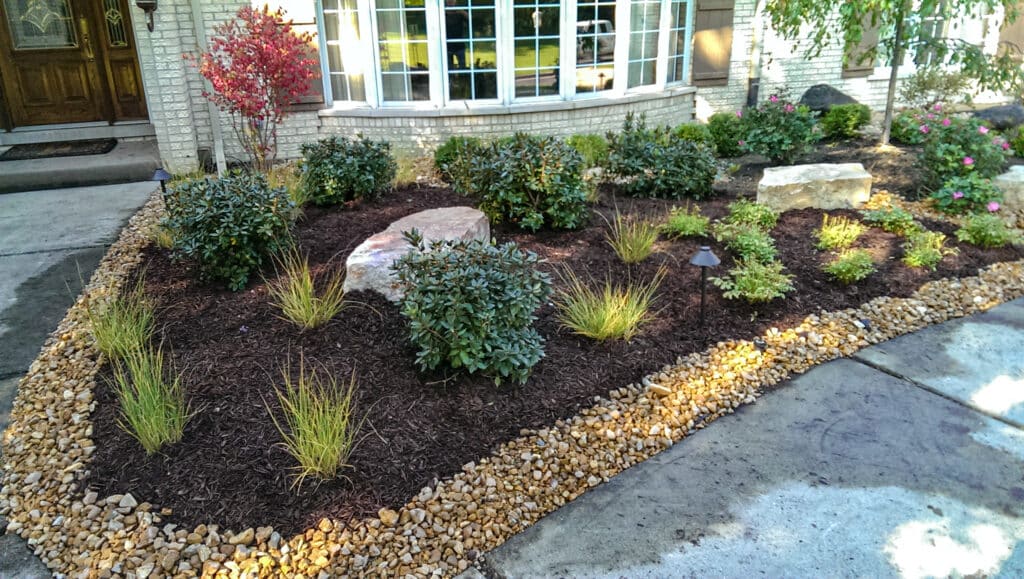
Organic Mulching
Mulch is a vital component of a sustainable garden, helping to retain soil moisture, suppress weeds, and improve soil health. By covering the soil, mulch acts as a protective layer that reduces water evaporation, making it especially beneficial during dry spells.
Organic mulches, such as shredded leaves, straw, or wood chips, break down over time, enriching the soil with essential nutrients. This decomposition process improves soil structure, fosters beneficial microbial activity, and enhances root development.
Additionally, using organic mulch reduces the need for synthetic fertilizers, thereby promoting a more natural and eco-friendly gardening approach. This not only encourages a healthy, vibrant garden ecosystem but also contributes to long-term environmental sustainability.
Sustainable Lawn Care
A lush, green lawn is often seen as a staple of the perfect garden, representing a well-maintained and inviting outdoor space. However, traditional lawn care can be resource-intensive, requiring significant amounts of water, fertilizers, and regular maintenance.
Sustainable lawn care practices offer a more eco-friendly approach.
For instance, mowing at a higher blade setting allows grass to retain more moisture and develop deeper root systems, which enhances its resilience.
Efficient watering, preferably early in the morning or late in the evening, minimizes evaporation and ensures that water reaches the roots where it’s needed most.
Choosing grass species that are suited to your local climate can significantly reduce the need for additional water and chemical treatments.
Additionally, opting for alternatives to traditional grass, such as groundcovers, clover, or native grass blends, can contribute to a more diverse and sustainable garden ecosystem. These alternatives not only reduce the environmental impact but also often require less maintenance and can provide habitats for local wildlife, creating a more vibrant and eco-friendly garden.

Conclusion
Sustainable landscaping is an achievable goal for homeowners looking to make a positive impact on the environment while enjoying the benefits of a beautiful, low-maintenance garden.
By incorporating practices such as native plant gardening, rainwater harvesting, organic mulching, and sustainable lawn care, you can transform your backyard into a thriving eco-haven.
Start small, and remember, every step towards sustainability is a step towards a healthier planet for future generations.
Begin Your Sustainable Landscaping Journey with Bret-Mar Landscape
Ready to transform your garden into a sustainable paradise? Bret-Mar Landscape is here to help bring your eco-friendly dreams to life.
With our expertise in native plant gardening, rainwater harvesting, organic mulching, and sustainable lawn care, we’re committed to creating beautiful landscapes that support the environment.
Contact us today to learn more about our services and how we can customize a sustainable landscaping plan that’s perfect for you and the planet. Together, we can make a difference—one garden at a time.


